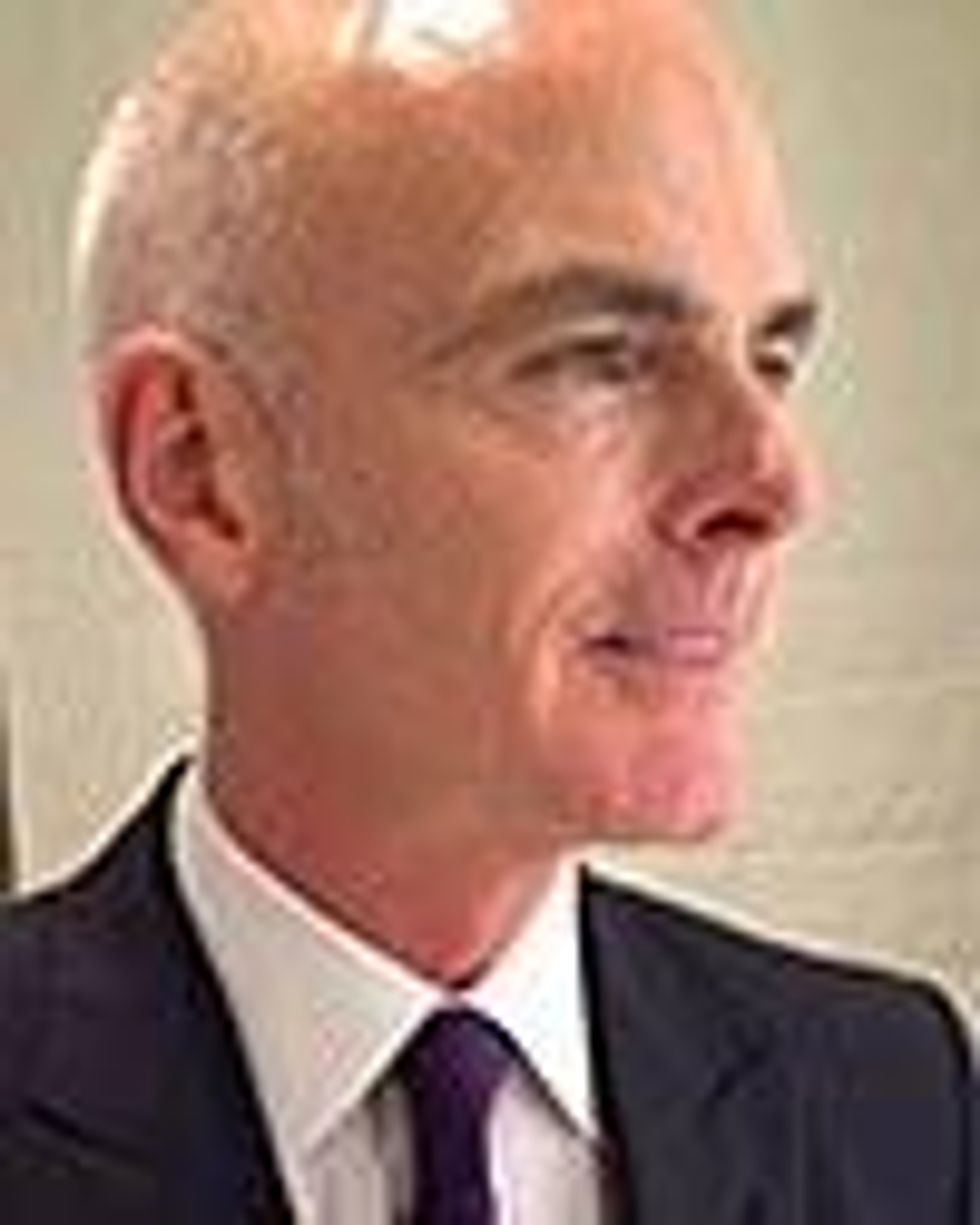This month I'm headed to Tokyo for a couple days to cohost the first seminar in Japan to discuss fertility and surrogacy options for LGBT people.
It seems hard to believe that this issue hasn't been addressed more proactively in Japan. I've been working with LGBT people and same-sex couples in the United States for 20 years. I've been proud to bring family-building options to people in Europe -- England, Spain, Italy, and other countries -- countless times in recent years. I've been to China and addressed the issue there; in fact, I'm also returning to Beijing, Shenzhen, and other Chinese cities next month to continue the conversations we have already started there.
Yet in Japan the issue of LGBT people and same-sex couples having children has been kept in the closet, even as more and more people in Japanese culture step out.
Since the start of my career, it's always been important to me to empower disenfranchised groups who may believe they have no options to build a family of their own. Whether it's people living with HIV, same-sex couples, or residents of other countries, nothing makes me happier than watching the eyes of people who once thought their dreams were extinguished suddenly see a brighter future. Truth is, no matter who it is across the table, working in fertility brings me that joy every time.
This empowering seminar in Japan is being made possible in large part due to the vision and hard work of two of Japan's most visible lesbians.
Koyuki Higashi and Hiroko Masuhara have been together for four years. Higashi is a model and TV personality turned activist who is shifting her public profile to the cause. The two are a dynamic couple, focusing their work now on bringing equality to LGBT people in their country.
In Japan, legal protections and social recognition for LGBT people are "about 30 years behind compared to America," Masuhara has told me. Family-building services are part of that slow progress.
Recently the couple was granted the first-ever certificate recognizing a same-sex union in Japan (though not called a "marriage" by the government). Two years ago they were they first same-sex couple to have a wedding (even if it was not officially recognized) at Tokyo Disney Sea themepark.
Now that they want to build a family, they are turning their efforts toward bringing family-building options to their community in Japan. They want to use their journey and influence to inspire others who may be in similar situations.
Surrogacy is actually not illegal in Japan. However, the Japan Society of Obstetrics and Gynecology has a guideline that forbids it. So while a doctor will not be prosecuted by the government for helping people have children through surrogacy, she could lose her license to practice medicine from the association, having the same effect as making it illegal.
What's more, doctors will not perform insemination and in vitro fertilization procedures on lesbians. Again, it is not illegal: Insemination and IVF procedures happen all the time in Japan for married heterosexual couples who want to have children. Instead, the policy strictly targets single women and lesbians, forbidding them from accepting insemination assistance from doctors.
That leaves lesbians like Higashia and Masuhara to seek assistance outside of Japan, or to do it "the old-fashioned way," as they say, with a male friend and home-grown insemination techniques out of the 1950s.
The seminar this month will provide important visibility for the community's struggle in Japan. It also gives us the opportunity to share key information about the various options people have to work with fertility and surrogacy specialists in the United States.
There have been some recent scandals with fertility and surrogacy providers in Thailand, which have given the process a bit of a black eye in Japan. Reassuring people about the safe, tested system we have here in America is of paramount importance in opening their eyes to possibility.
The event is being cohosted by my fertility clinic, along with surrogacy agency A Perfect Match and the Reproductive Law Center, all having over 20 years of experience in Southern California. Our cohost, J Baby, is a critical partner in the seminar, as it specializes in helping Japanese people find fertility options in the United States.
It's not a coincidence that so many of the partners bringing this groundbreaking seminar to Japan are based in California. The Golden State is at the forefront of safe and established practices and laws in this field, with people from around the world coming here to help build their family.
While a recent poll showed that less than 4 percent of LGBT people in Japan have children, the number is rising fast in the United States due to the laws and access Americans have to reproductive assistance. Despite surrogacy being illegal in populous states like New York and Michigan, the practice is exceptionally accessible in California.
We hope this seminar is a big step toward making more dreams a reality for our Japanese LGBT brothers and sisters.
The Gay Family Building Through Surrogacy and Egg Donation seminar is being held January 19 at Trunk by Shoto Gallery, 3rd Floor (Shoto 1-5-4, Shibuya-ku, Tokyo).
 GUY RINGLER is a board-certified physician in both obstetrics and gynecology and reproductive endocrinology and infertility. He is a partner with California Fertility Partners.
GUY RINGLER is a board-certified physician in both obstetrics and gynecology and reproductive endocrinology and infertility. He is a partner with California Fertility Partners.


 GUY RINGLER is a board-certified physician in both obstetrics and gynecology and reproductive endocrinology and infertility. He is a partner with California Fertility Partners.
GUY RINGLER is a board-certified physician in both obstetrics and gynecology and reproductive endocrinology and infertility. He is a partner with California Fertility Partners.

































































Charlie Kirk DID say stoning gay people was the 'perfect law' — and these other heinous quotes